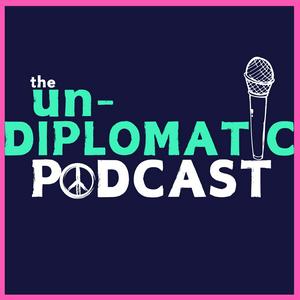The Art of Memoir and Stories of Conversion: A Bang-Bang Podcast Crossover | Ep. 248
Free episode cross-over with the Bang-Bang Podcast. The question of “Which side are you on?” haunted me (Van Jackson) intermittently throughout the long Global War on Terror. It was a beat that I would hear during occasional moments of consciousness, which I tried to suppress or rationalize away…until I no longer could.On my other show, The Bang-Bang Podcast, I ended up having a surprising conversation with our guest, George Dardess. Before we started the actual episode, we talked at length about memoirs and stories of conversion.George is an expert in the lost art of close reading, which we get into. And his favored genre—which also happens to be mine—is the memoir. My co-host Lyle Rubin wrote a memoir, and his wife, Colette Shade, just came out with a memoir too (both are excellent). In that context, George started asking about my story, and the beginnings of my own memoir inadvertently came pouring out.The conversation has stuck with me everyday since. Although I have no shortage of distractions, I’ve begun putting pen to paper, reckoning with the slow-burning crisis of conscience that took me from being an agent of the national security state to one of its fiercest critics.As we discuss in this short episode, there are a few factors that might account for my political consciousness.Hip-hop not only acquainted me with the Black Freedom Struggle from an early age; it provided a soundtrack, a musical coda, to my life. And I think that made a difference.Spending time in Monterey, California, at the Defense Language Institute, was a pivotal experience. In a twisted way, so was my immersion in “hustle culture,” which was so strong that I basically lost my 20s to obsessive self improvement. When my humanity finally thawed in the 2010s, the world had changed dramatically and I started questioning my place in it.Physically getting out of Washington—an idea whose appeal grew during my alienation in Obama’s second term—was almost certainly crucial too. It feels like I’ve always been on some Robert Frost shit. Few roads are less traveled by than New Zealand, and it has made all the difference!But I also grew up precarious working class. The lives of the people surrounding me had no connection to the foreign policy world I strived so hard to enter. At first, I saw that as a problem of social mobility. Eventually, I would see it as a problem of class antagonism—national security takes its legitimacy from the people but forsakes them in its every decision. The most generous thing I could say about foreign policy is that people like me faced problems growing up that were never made better by anything happening in national security.Anyway, I have a lot to work through. But if you’re interested in memoir as a form, close reading as a practice, or some of the details in my personal evolution, you’ll find this impromptu conversation as stimulating as I did.Subscribe to the Bang-Bang Podcast: https://www.bangbangpod.comSubscribe to the Un-Diplomatic Newsletter: https://www.un-diplomatic.com/
